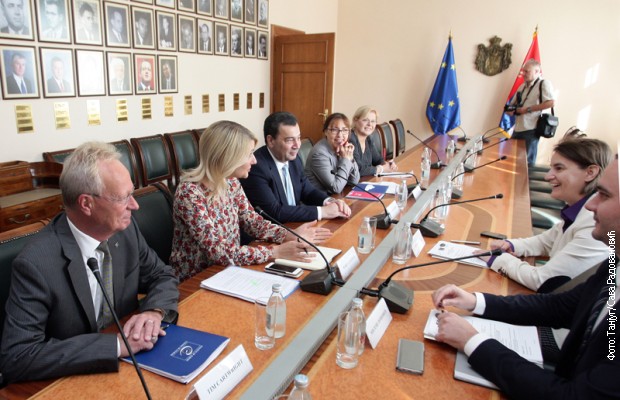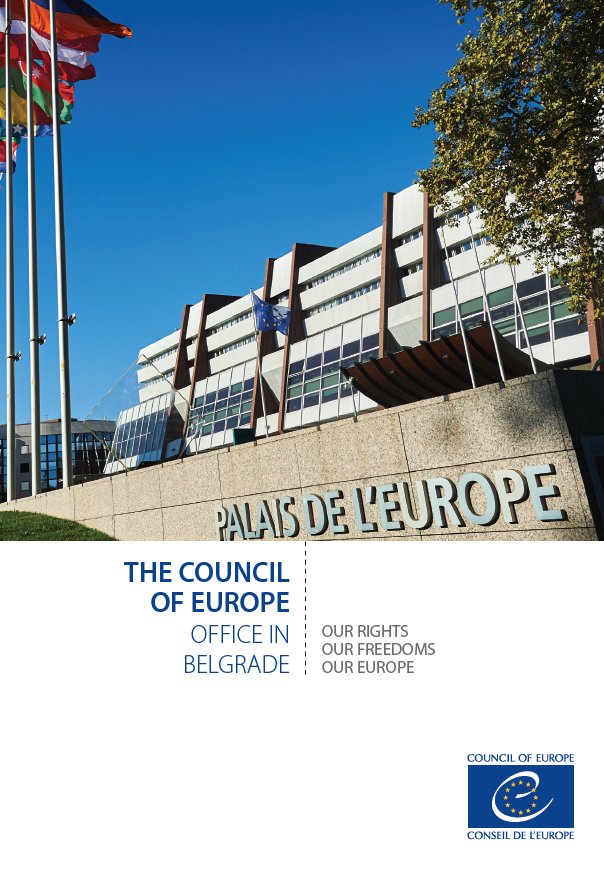Samad Seyidov (Azerbaijan, EC) and Maria Guzenina (Finland, SOC), PACE co-rapporteurs for the monitoring of Serbia, assessed progress made by Serbia in fulfilling its Council of Europe obligations, concluding that this is accelerating with Serbia’s continued aspiration to join the European Union.
“We welcome the newly-appointed Prime Minister Ana Brnabic’s commitment to consolidate rule of law following difficult economic reforms, and her readiness to address the issues of the media environment which remains of concern. The designation of the first female, and first openly LGBT person, to the Office of Prime minister, reflects Serbia’s intention to overcome prejudice, foster new visions in a changing world and to seek further compliance with COE standards and values,” the co-rapporteurs said.
“We look forward to the further efforts that are required and to the inclusive discussions on revising the constitutional provisions pertaining to the judiciary, which is a pre-requisite to de-politise judicial institutions, strengthen rule of law and increase trust in state institutions. The Council of Europe, and particular its Venice Commission, stand ready to support the efforts of Serbian authorities,” the co-rapporteurs added.
Visiting Bujanovac and Preševo (Southern Serbia), the co-rapporteurs discussed in particular the situation of the Albanian national minority with the mayors and civil society members. They noted that the legislative framework provides for a high level of protection of minorities, but called for full implementation of the laws. “We noted that while the population is facing social and economic challenges, including unemployment, the on-going political discussions at regional level have a strong impact on attitudes and perception at local level. We therefore encourage a continued EU-facilitated dialogue between Belgrade and Pristina, call for the full implementation of the existing agreements, and look forward to further mutually agreed arrangements that could ease the situation in Southern Serbia”.
“In our meetings, both representatives of the Serbian authorities and of the Albanian national minority expressed readiness to engage in dialogue. With political will from both sides, we are confident that a number of contentious issues can be resolved, such as the availability of textbooks in Albanian language; recognition of diplomas; or increased representation of minorities in state institutions. We trust that investment in education, language-learning and capacity-building will consolidate stability in this region, make it an attractive place for its young generation and for investors to take advantage of its geographical position. The newly-established Faculty of Economy in Bujanovac exemplifies the region’s potential for economic and trade development. Such investments empower and provide opportunities for the future of Serbian, Albanian and Roma students of the region, and should thus be further encouraged.”
In Belgrade, PACE co-rapporteurs met Prime minister Ana Brnabic, Vice-Speaker of the Parliament Djordje Milicevic, the First deputy Prime Minister and Minister of Foreign Affairs Ivica Dacic, Deputy Prime minister and Minister of interior Nebojsa Stefanovic, representatives of the ministries of Justice, European integration, Public Administration and Local Self-Government, members of the Serbian delegation to PACE, leaders of political parties, the State Prosecutor, and representatives of the diplomatic community, NGOs and the media. Discussions focused on the situation of minorities, the reform of the judiciary, the fight against corruption, the situation of the media, and implementation of Resolution 1858 (2012) on the honouring of obligations and commitments by Serbia.





